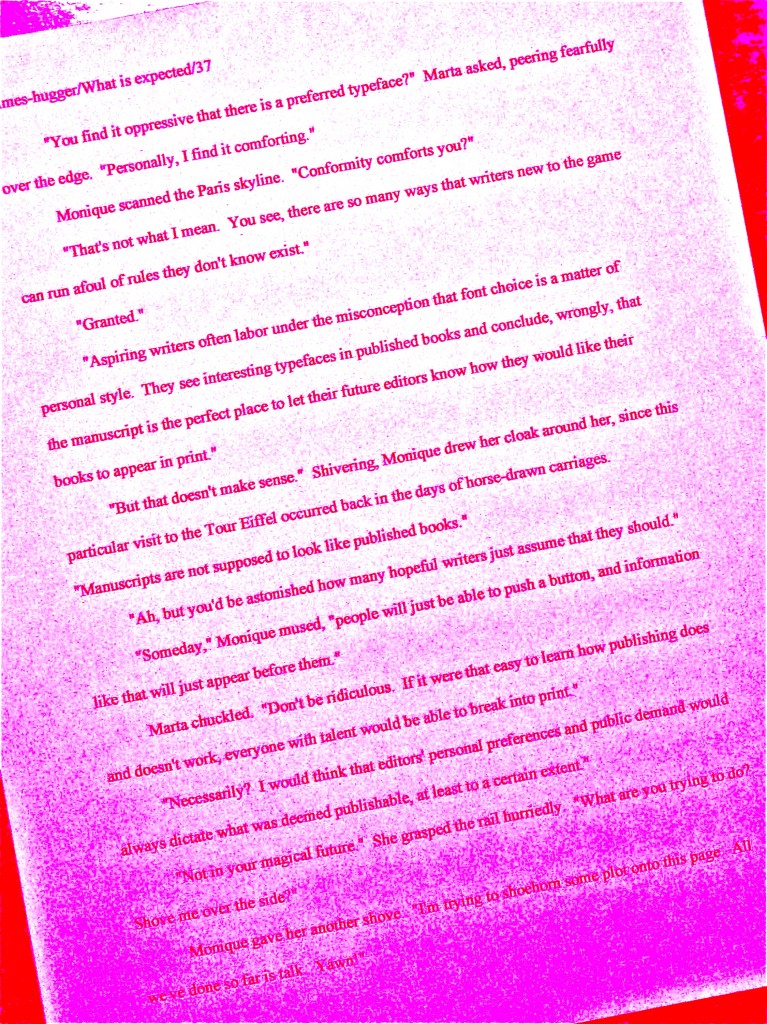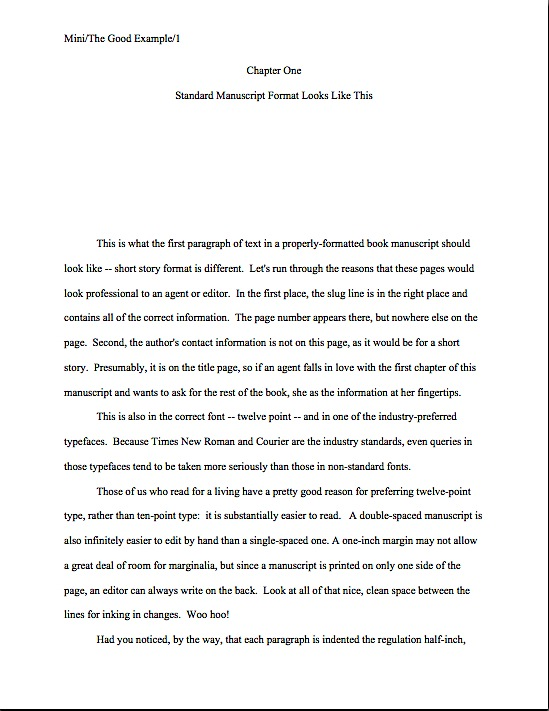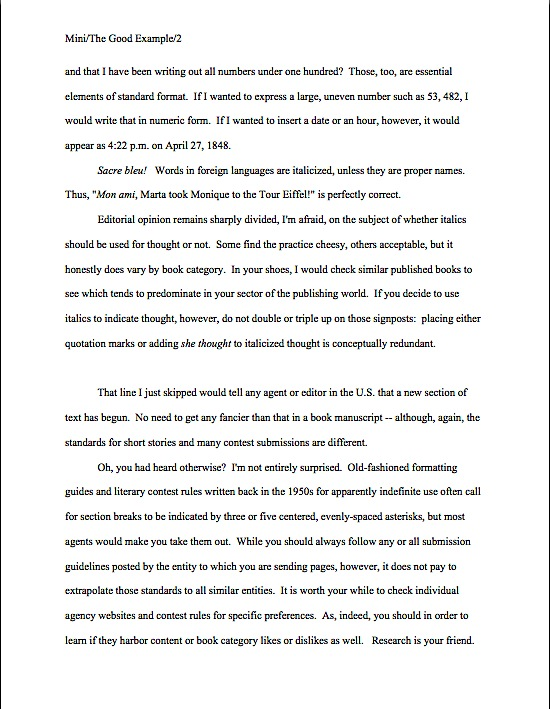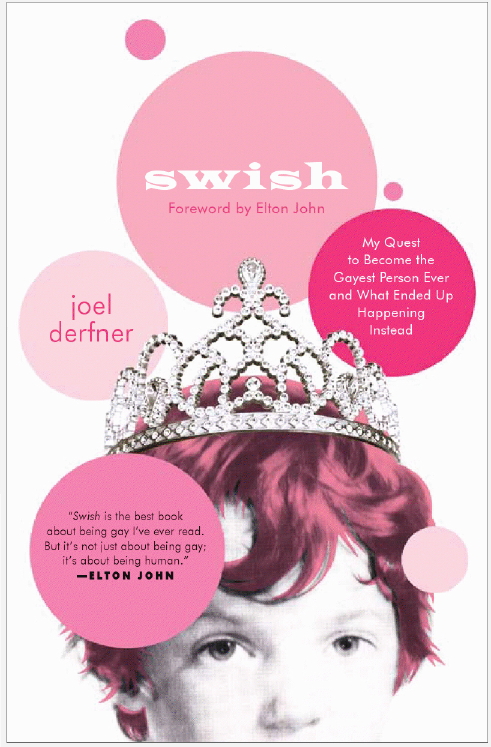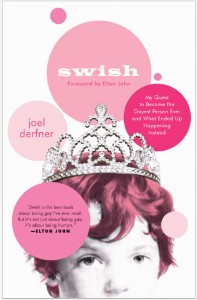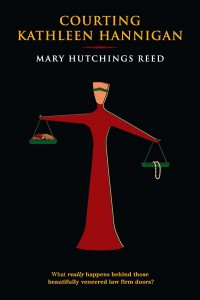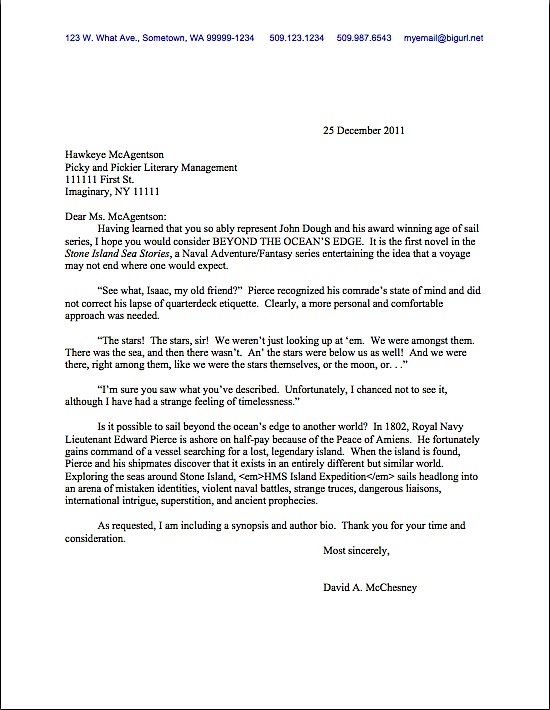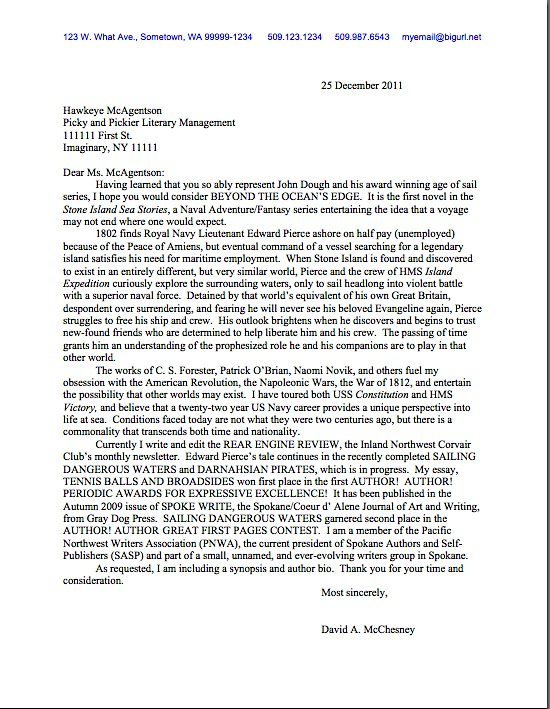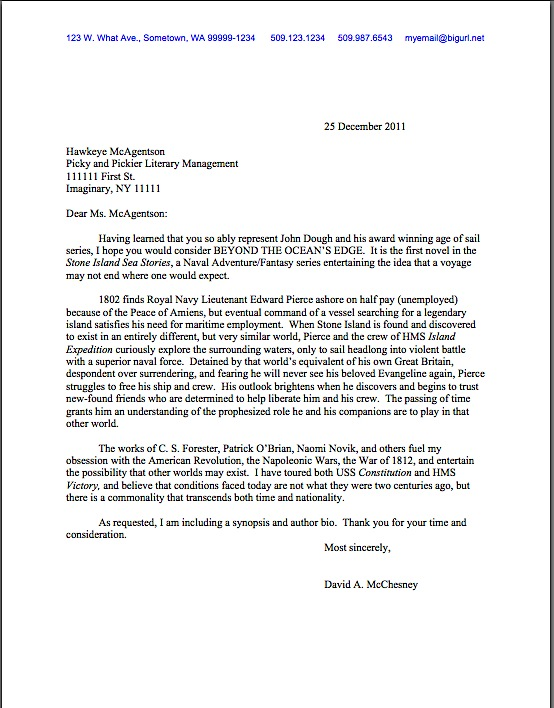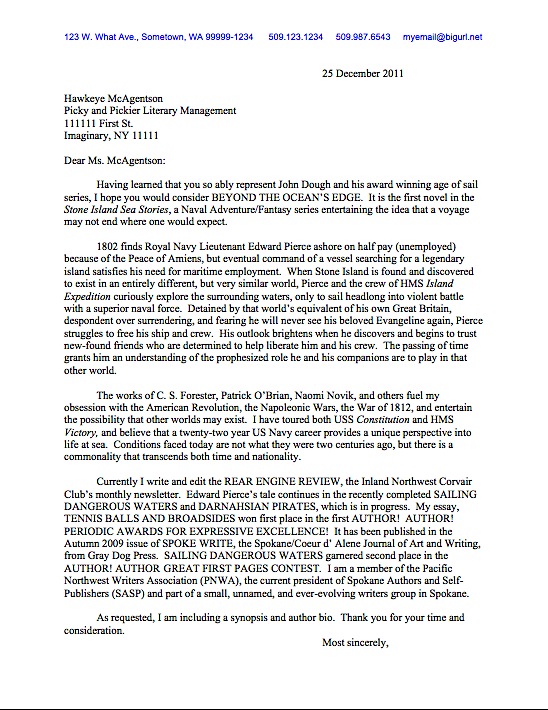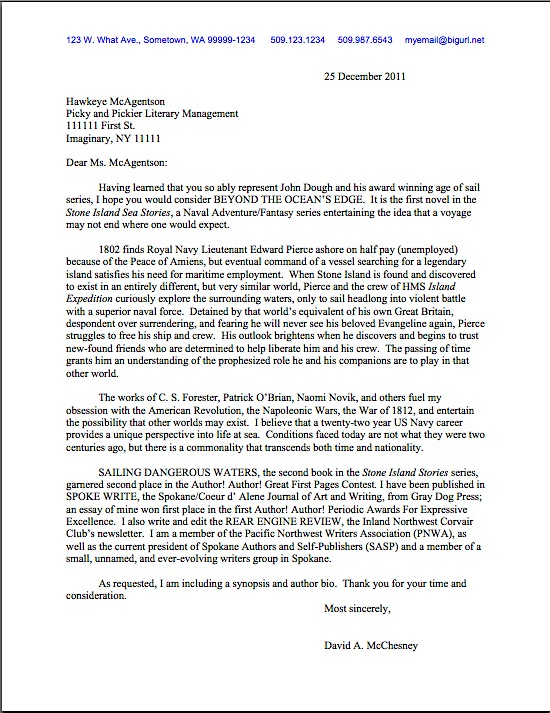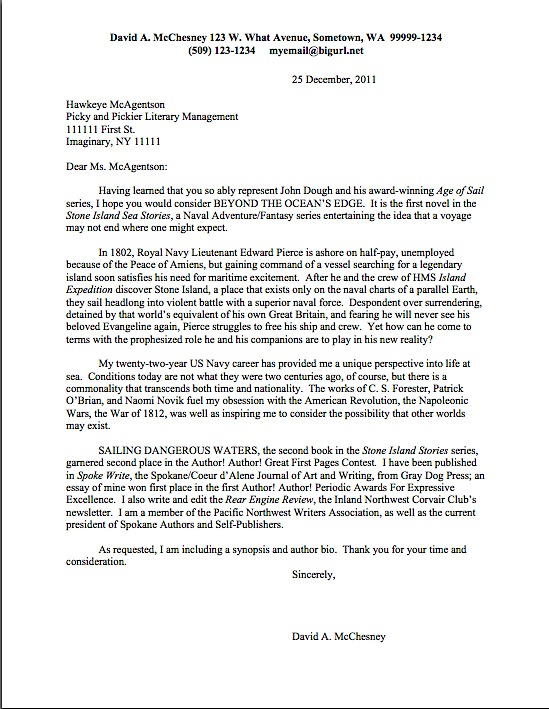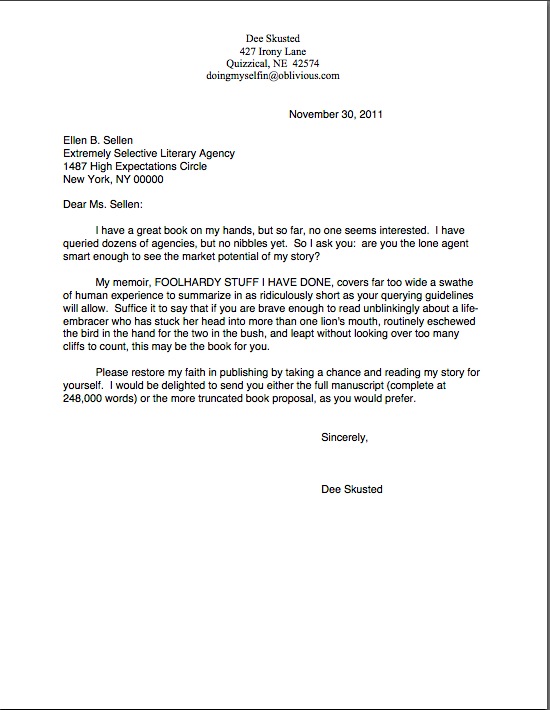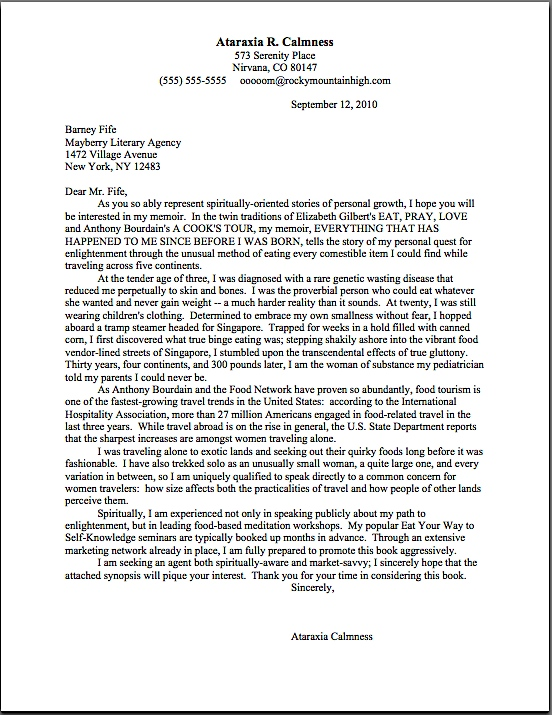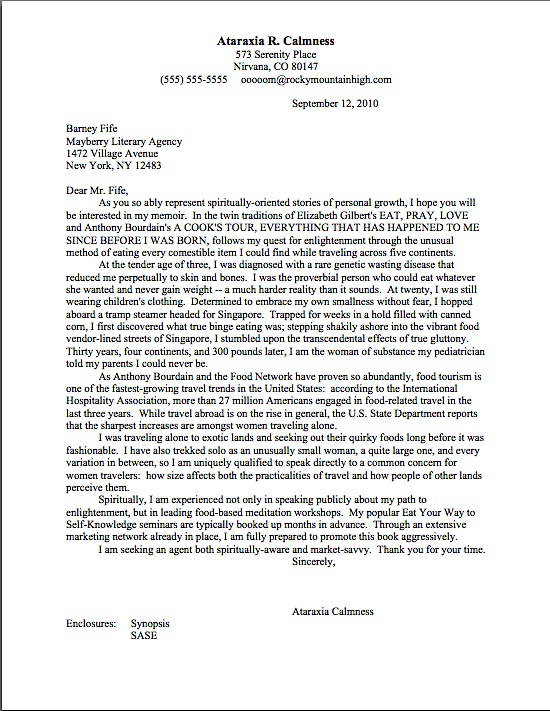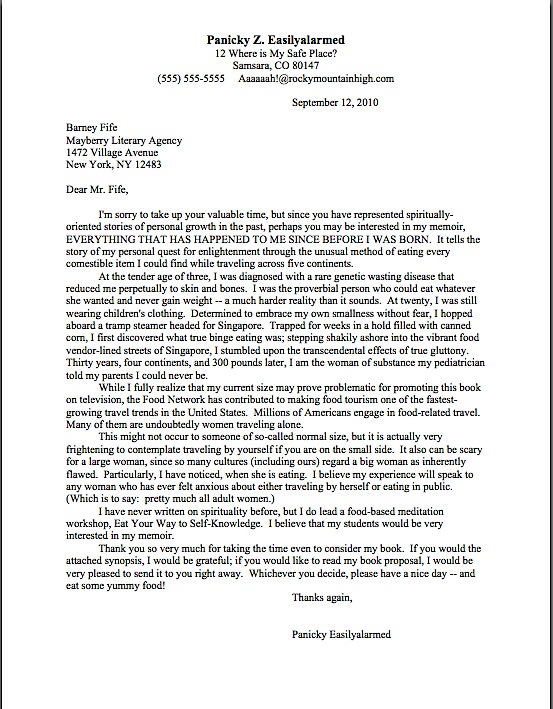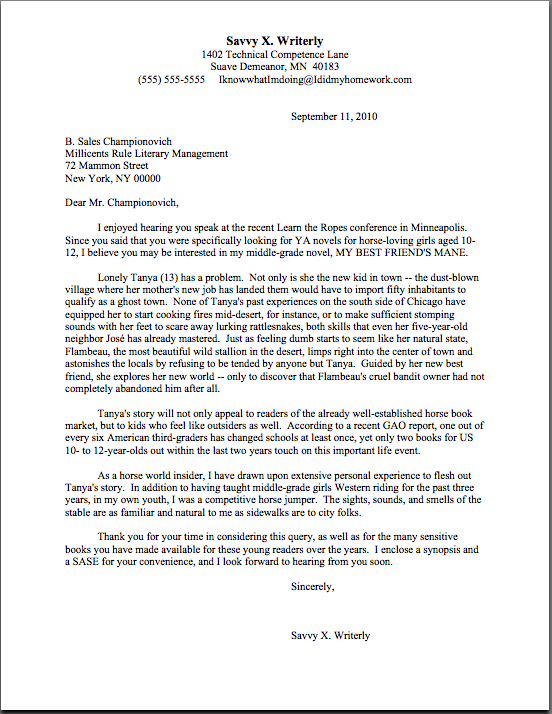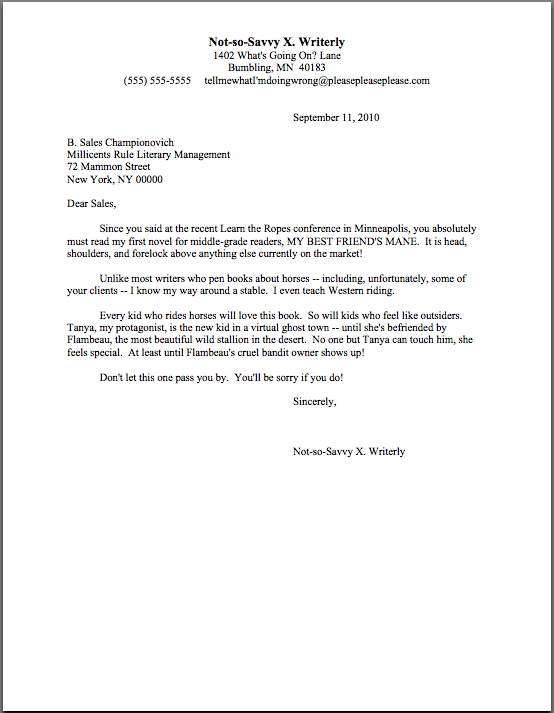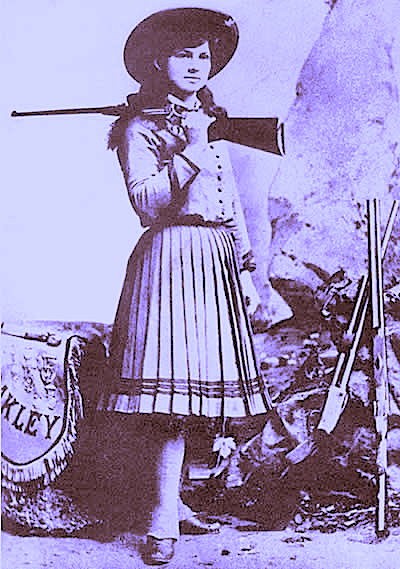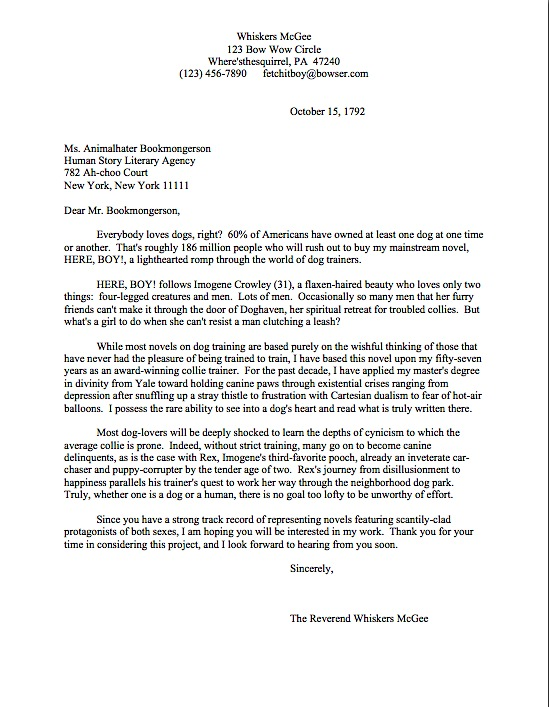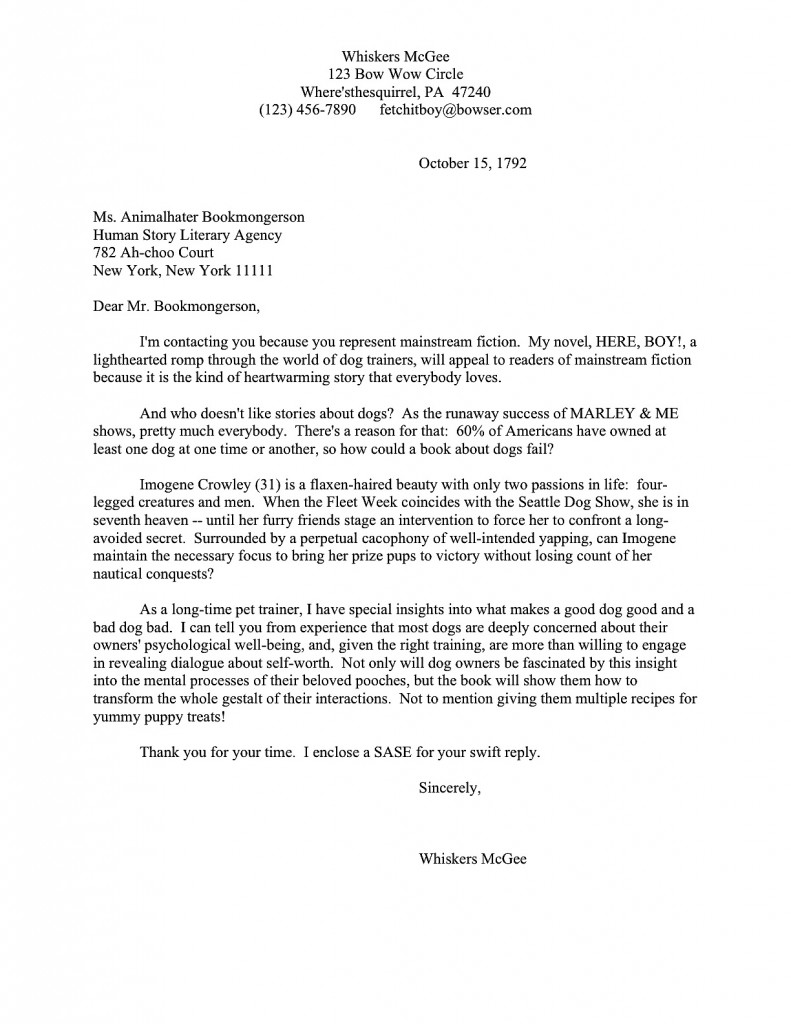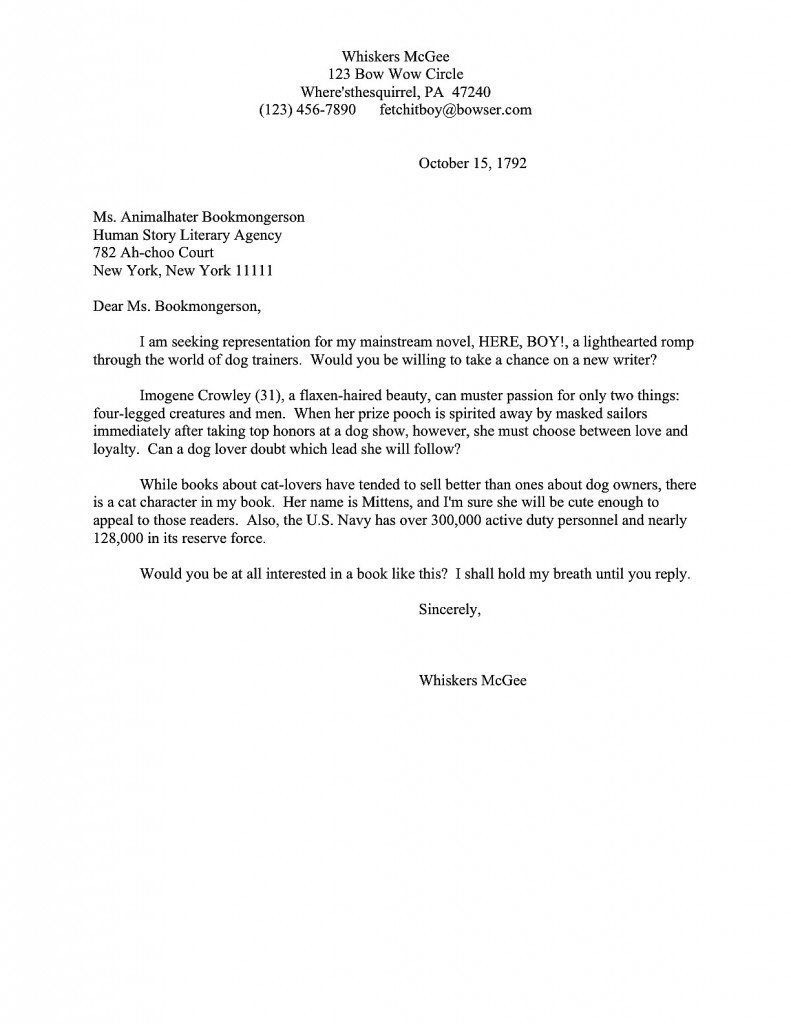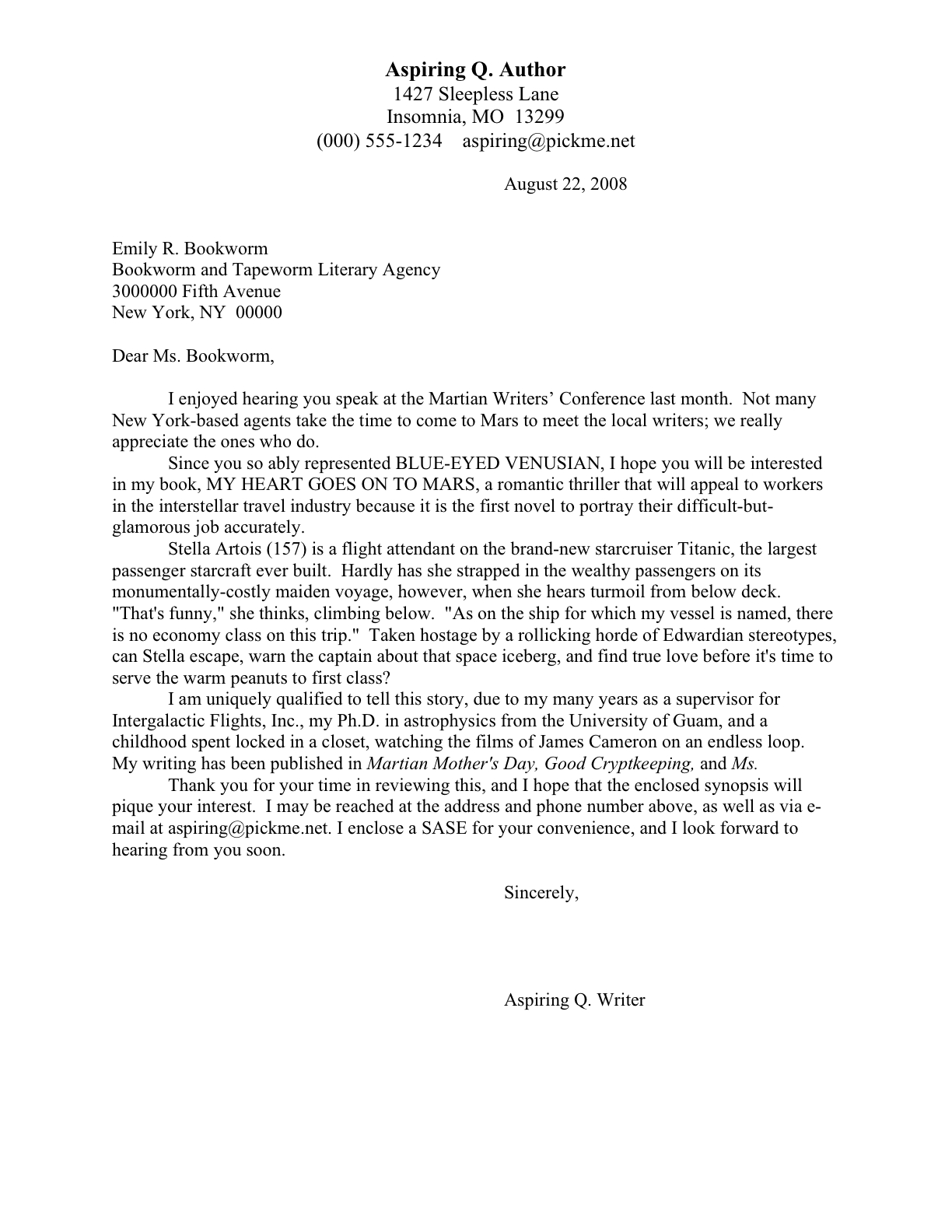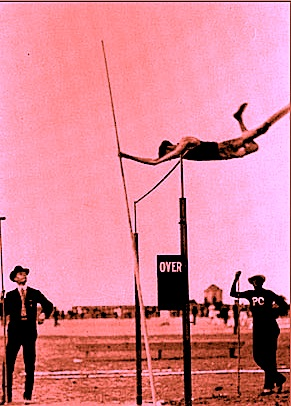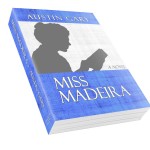Ah, exclusivity. As a recent question from a member of the Author! Author! community reminded me, few issues trouble the sleep of writers new to submission more than this: if an agent asks to read my manuscript, may I show it to another while she’s reading it?
That burning question does not concern merely the stressed-out fortunate lucky enough to have received a request for an exclusive peek at their manuscripts, either. Writers’ minds are, let’s face it, unusually gifted at spinning out scenarios both fabulous and fabulously disastrous about what happens to their manuscripts after those pages disappear into the murky depths of an agency, doubt abounds — and multiplies unmercifully. What happens if an agent asks to see my book on an exclusive basis, the aspiring fret, and who could blame them? and she doesn’t make up her mind before another agent asks to see it? What if I’ve already sent pages to fifteen other agents, and somebody asks for an exclusive? What if one of those fifteen never gets back to me, so I don’t know whether I have a manuscript under consideration or not when a new one asks? While I’m at it, what if an agent really did want an exclusive, but I didn’t pick up some subtle, publishing-world-specific signal and mistakenly submitted my book widely? What if paper-devouring giants come along and inhale my pages between the time they land at the agency of my dreams and when the agent of the aforementioned dreams has a chance to read them? What if…
Enough, already. The short answer to all of these questions is this: you’re probably not going to find yourself in most of these situations. Particularly that one with the giants.
Or, as it happens, the one about being ethically bound not to show your work to a second agent while a first is pondering it. Contrary to popular dead-of-night fears, requests for exclusives — the perversely longed-for situation in which an agent cries, “Wait! I liked your query/pitch/first few pages that I read so much that I want to be the only agent in Christendom reading it! Don’t show it to anyone else until I have, ‘kay?” — are actually relatively rare. And contrary to rumors lingering from the writers’ conference circuit, it’s also not especially common for agents to demand exclusive peeks at manuscripts as a matter of policy.
Except that some agencies do harbor that policy. Some agents do ask for exclusives. And occasionally, a perfectly well-intentioned writer just trying to follow the rules finds herself singing the title of this post to a dark ceiling at 4 a.m.
How do I know this? Experience, mostly: the Author! Author! comment section has been the go-to source for writers’ anxiety for years now. During and after every single conference season — yes, and every single autumn, in the weeks after savvy writers have sent out post-Labor Day queries — successful pitchers and queriers have come creeping to me furtively with a terrified question: what have I done, and how may I fix it?
Oh, you think that’s an exaggeration, do you? Let me put it this way: for the last few years, I have asked these panicked persons — after I have soothed their heated brows, of course — to give me suggestions for what category title, if any, would most easily have caught their eye on the archive list at the height of their chagrin. Without exception, every single respondent has suggested that I include the word Help!
Usually with several exclamation points. I have some reason to believe, then, that there’s just a little bit of ambient confusion about when it is and is not okay to submit a manuscript to several agents or editor at a time. And, perhaps even more pertinent to the midnight terrors haunting many right about now, how should a writer lucky enough to walk away from a conference with more than one request for pages decide which agent or editor to submit to first?
The short answer, as it so often is in publishing matters, is it depends. The long answer is a question: what about these particular requests make you believe you have to rank them?
If you’re like most writers gearing up to submit, the answer to the long answer probably runs a little something like this: well, obviously, I shouldn’t submit to more than one agent at a time — that would be rude. Or is that I’ve heard that agents consider it rude? Anyway, I wouldn’t want to run the risk of offending anyone. Besides, if I submit only to the one I liked better — which was that again? — I don’t have to come up with a graceful way to say no to the other one. And it’s less work for me: if the first one says yes, I don’t have to go to the trouble of making up another submission packet. But if I do that, must I wait for the first to say no before I send out pages to the second? What if the first never gets back to me? Or what if the first doesn’t get back to me until after I’ve already submitted to the second, and then yells at me because he didn’t want me to show the book to anyone else? And what if…
Hey, I wasn’t kidding about writers’ being gifted at spinning out the ol’ plot lines. If that logic loop sounds familiar, the first thing to do is calm down. In the vast majority of multiple submissions, no problems arise whatsoever.
Especially if you’re clever and conscientious enough to have double-checked the various agencies’ websites and/or listings in a recent edition of one of the popular guides to literary agents. If an agency has a policy of demanding to be the only one considering a manuscript for representation, they’ll generally say so. It’s also quite normal for an agent expecting to read a manuscript without competition to ask for an exclusive point-blank.
And already, I hear sighs of relief bouncing off mountaintops around the cosmos. “Phew!” thousands of submitters mutter. “That was a close one. I’d heard that maybe all agents secretly expected me to submit, or even query, only one of them at a time. So when my already-bloodshot eyeballs caught sight of the title of this post, I instantly felt guilty!”
If so, you’re not alone. The welter of dire warnings and fourth-hand horror stories floating around out there has created a miasma of anxiety around querying and submission. Surely, I don’t have to tell any of you reading this that there’s an awful lot of querying and submission advice out there, much of it contradictory. (Which is, in case those of you searching frantically through the archives have been wondering, why I always provide such extensive explanations for everything I advise here: since so many of my readers are considering quite a bit of competing information — and frequently doing it in a moment when they are already feeling overwhelmed — I believe that it’s as important that you know why I’m suggesting something as to understand how to implement the suggestion. I never, ever want any of my readers to do what I say just because I say so. So there.)
I probably also don’t have to tell you — yet here I am doing it — that quite often, submission problems are the result of believing the common wisdom and applying it to every agent one might ever want to approach, rather than carefully reading each agency’s submission guidelines and treating each query/submission situation as unique.
Sometimes, though, even that level of hedging doesn’t prevent a writer from falling into a ditch. Witness, for instance, the situation into which Virginia, a long-time member of the Author! Author! community, innocently tumbled a while back.
Help! I submitted only two queries to two agents. One got back to me quickly and did ask for exclusive right to review. A few days after I agreed to this, the second agent replied and asked for pages. I don’t want to violate my agreement, but how do I tell the second agent I’m really happy she wants to see more but she has to wait?
Successful queriers and pitchers end up in this kind of dilemma all the time, often without understanding how they ended up there or why they’re stressed out about what was presumably the outcome they were seeking when they approached multiple agents simultaneously: more than one agent interested in reading their work. An exclusive is always a good thing, they reason nervously, a sign that an agent was unusually eager to see a queried or pitched book, and thus decided to bypass her usual method of requesting manuscripts.
Not always, no. But it depends.
Sometimes, a request for an exclusive genuinely does indicate an agent’s being so excited by a query or pitch (especially if that book has just won a major literary contest) that she’s afraid that another agent will snap it up first. Far more frequently, though, a surprise request for an exclusive is the natural and should-have-been-expected outcome when a writer approaches an agent working at an agency that has an exclusives-only policy.
Does that forest of hands springing up out there mean some of you have been paying attention? “But Anne,” attentive readers everywhere shout, “isn’t that precisely the kind of behavior you have been exhorting us not to practice?”
Yes, shouters: help yourself to a gold star out of petty cash. A savvy querier does indeed double-check every agency’s submission policies every time.
But let’s say that you didn’t. Again, that wouldn’t exactly place you in the minority — the overwhelming majority of queriers don’t read each individual agency’s submission guidelines before sending out those letters. At least the first time around, aspiring writers generally assume that all agencies operate in the same manner. And very few pitchers do much research on the agents and editors they plan to approach at conferences, beyond reading the blurbs in the conference brochure.
So if you find yourself teetering uncomfortably in Virginia’s steps, don’t worry. You’re certainly not the only aspiring writer that’s ever slipped into those moccasins. Heck, you’re probably not the only one to try to trudge a mile in them today.
Especially likely to find themselves limping through this dilemma: pitchers and queriers who do what virtually every aspiring writer asked to submit materials does — and what Virginia probably did here: sending out pages within hours of receiving the request.
It’s a completely understandable faux pas, in short, especially if the request for an exclusive arises from a query. Overjoyed at what they assume (in this case, wrongly) will be the only interest their queries will generate, many multiply-querying writers don’t pause to consider that multiple requests for manuscripts are always a possible outcome while sending out simultaneous queries.
Thus, it follows as night the day, so is a situation where one of those agents requests an exclusive. And it follows as day the night that an exclusive request is also a possibility when pitching at a conference.
This is why, in case any of you inveterate conference-goers have been curious, agents and editors invariably sigh when an aspiring writer raises his hand to ask some form of this particular question — and it’s not for the reason that other aspiring writers will sigh at it. (The latter usually sigh because wish they had this problem, and again, who could blame them?) The pros will sigh because they’re thinking, Okay, did this writer just not do his homework on the agents he approached? Or is he asking me to tell him that he can blithely break the commitment he’s made to Agent #1? Does this writer seriously believe all agents are in league together, that I would be able to grant permission to insult one of my competitors?
That’s why everyone else will sigh. I, however, sigh because my thought process runs like this: okay, I have to assume that the questioner is someone who hasn’t read any of my blog posts on querying or submission, as much as that possibility pains me to consider. But since I have a small army of explicitly-named categories on my archive list — conveniently located at the bottom right-hand side of my website’s main page, including such topics as EXCLUSIVES AND MULTIPLE SUBMISSION, EXCLUSIVES TO AGENTS, SIMULTANEOUS SUBMISSIONS, and WHAT IF MORE THAN ONE AGENT ASKS TO SEE MY MANUSCRIPT? — directly aimed at answering this question, and a battalion more that deal with it within the larger context of submission (under provocative headings like AFTER YOU RECEIVE A REQUEST FOR PAGES, AFTER YOU SUBMIT, HOW LONG BEFORE THE REQUEST FOR PAGES EXPIRES? HOW SOON MUST I SEND REQUESTED MATERIALS? INDUSTRY ETIQUETTE, IS IT OKAY TO SUBMIT TO SEVERAL AGENTS AT ONCE? and other similarly-named categories based upon panicked questions from members of our little community), as well as a dramatically-reenacted scenario directly related to this issue in the Industry Etiquette series. Yet I have to assume that the questioner is facing a situation that I have managed to overlook addressing in any of these posts. So I shall eschew the temptation just to send the questioner to any or all of those categories, try to understand how and why this situation is unique, and answer the question for the 1,477th time, because gosh darn it, a writer is in pain!”
Yes, I can think with that much specificity in mid-sigh, thank you very much. It’s just one of my many, many dubious talents.
All that being said — or, at any rate, thought exceptionally loudly — it is undoubtedly true that more writers than ever before seem to be finding themselves enmeshed in Virginia’s dilemma. Or simply unsure about whether it’s okay to submit to more than one agent at once. Quite a bit of the common wisdom out there, after all, dictates that writers should wait to hear back on one submission before sending out the next.
The short answer to that: poppycock! The long answer — and I sincerely hope that by now you saw this coming — is it depends.
On what? On the individual agency’s policies, of course, as well as how the agent in question phrased the request for pages. And, lest we forget, upon the writer’s planned submission schedule.
Let’s face it, more than one agent’s reading your pages simultaneously constitutes a fairly significant advantage. In an environment where submission volumes are so high that even a requested full manuscript may well sit on a corner of an agent’s desk for a year or more — and that’s after Millicent has already decided she liked it enough to pass it along to her boss– just presuming that any agent would prefer to be the only one considering a manuscript could add years to the submission process. If an agency has a no-reply-if-the-reply-will-be-no policy, stated or unstated, the hapless submitter can have no idea whether silence means (a) no, (b) the manuscript got lost in transit, (c) the manuscript got lost at the agency, d) those pesky giants made a meal of it — or e), most common of all: the agent just hasn’t had time to read it yet.
Well might you turn pale. As agencies have been cutting their staffs over the last few years (and aspiring writers who wouldn’t have had time to query or submit before the economic downturn have been digging old manuscripts out of bottom desk drawers), turn-around times lengthened demonstrably. Not entirely coincidentally, the practice of not informing a submitter if the answer is no has increased dramatically. So has hanging on to a manuscript someone at the agency likes in the hope that market conditions will improve for that type of book.
An unfortunate side effect: more and more submitters who just don’t know whether they can legitimately grant exclusives to another agent or not. How could they, when they have heard that writers should never bug agents while their manuscripts are under consideration?
All of which is to say: let’s not be smug when a fellow writer finds himself stuck in this particular tar pit. It actually isn’t fair to leap to the conclusion that if aspiring writers read agents’ websites and agency guide listings more thoroughly, they would never end up in this situation. Sometimes, an exclusive request does come out of a genuinely blue sky, whacking a conscientious multiple querier or submitter right in the noggin.
How is that possible? Amazingly often, the writer simply does not know that exclusivity is even a remote possibility until an agent asks for it. Unless an agency has an exclusives-only policy (do I need to remind you again to check?), the prospect generally will not be mentioned in its submission guidelines.
Then, too, the request for an exclusive is seldom formulated in a manner that informs a writer not already aware of the fact that she can say no. Or that she can defer saying yes, granting the exclusive at a later date. Or put a time limit on the exclusive, if she agrees to it at all.
All are perfectly legitimate responses to a request for an exclusive, incidentally. But whether any of them is situationally-appropriate depends on the actual content of the request; they vary more than one might think.
I can, however, rule out a couple of possibilities up front. First, there is no such thing as an implied request for an exclusive; such requests are always directly stated. So unless an agent or editor specifically asked for an exclusive peek at all or part of a manuscript or the agency has a clearly-posted exclusives-only policy on its website, a writer does not need to worry at all about offending Agent A by submitting simultaneously submitting the same manuscript to Agent B.
Yes, really. Just mention in your cover letters to each that another agent is looking at it — no need to say which one — and you should be fine.
Would you fling the nearest portable object in my general direction, though, if I swiftly added that the advisability of even this morally blameless route sometimes depends upon factors beyond the writer’s knowledge and control? Back in my querying days, I blithely sent off requested materials to a seventh agent, while six were already considering it. In that, I was being completely ethical: all seven’s agencies websites, communications with me, and listings in the standard agency guides failed to mention any exclusives-only policies. Nor did #7’s request for the manuscript specify that he wanted an exclusive. That being the case, I simply told him in my cover letter that he was not the only agent reading the book.
You can see this coming, can’t you?
I must admit, I didn’t — his irate announcement that his agency never considered multiple submissions left me pretty gobsmacked. But once he had expressed that preference, I was compelled to abide by his rules, even though they were late-breaking news: I had to choose whether to e-mail him back to say I accepted his terms, and would be telling Nos. 1-6 that my manuscript was no longer available, or to apologize for not being aware of what I could not possibly have known and withdraw my submission to him. I chose the latter, and lived to submit another day.
I sense some of you seething, do I not? “But Anne!” the hot-blooded among you cry. “That wasn’t fair! Why didn’t you insist that he abide by what you thought were the original terms of the submission?”
Because, passionate ones, as Thomas Hobbes once so rightly observed, rights are the ability to enforce them. Arguing with an agent about his own submission policies is always a losing proposition for a writer.
So before you say yes to an exclusive, make sure you understand its terms, as well as what granting it would mean for you. Read that request very, very carefully, as well as the agency’s website. (Yes, again; they might have changed their policies since you sent your query.) Will the exclusive be open-ended, or is the agent asking for you to hold off on submitting elsewhere for a particular period of time? If the request doesn’t specify an end date — and most exclusive requests don’t — would you feel comfortable setting the request aside for a few months while you responded to any other agents that had already expressed interest? Or if it took three months to get an answer from an agent that already had the manuscript?
Stop gasping like a beached whale. A three-month turn-around on a manuscript submission would be a positively blistering rate, by current standards.
While you’re asking those follow-up questions, here’s another: are you absolutely positive that the agent is asking for an exclusive? Sometimes, in the heat of excitement at hearing a yes, a successful querier — or, even more commonly, a successful pitcher — will slightly misinterpret what he’s being asked to do.
Yes, really. Many a super-excited conference attendee has floated away from a pitch meeting falsely believing that he and the agent have hit it off so darned well in that ten-minute conference that obviously, the agent must be expecting an exclusive. Heck, good ol’ (fill in polite pitch-listener’s name here) would be positively hurt if her new buddy allowed another agent so much as a peek at it, right?
Um, wrong. Chant it with me now, close readers: unless an agent specifically asks for an exclusive or her agency has an established exclusives-only policy, you are free to submit as widely as you wish. The same holds true if you have indeed received a request for an exclusive, but have not yet granted it. While the manuscript remains in your hands, you retain complete control.
Feel better, submitters? I thought so. Remember, a request for an exclusive is in fact a request, not a command. Even if a writer receives one or more requests for an exclusive, she’s not under any obligation to grant any or all of them– nor does she need to agree to any right away.
That’s vital to know going in: the instant the writer has agreed to an exclusive, she does in fact have to honor it. So it’s in the writer’s best interest to give the matter some advance thought.
I just felt half of you tense up at the very notion of delaying so much as forty consecutive seconds before bellowing, “Yes! Yes! Whatever you want, agent of my dreams,” but think about it. If Virginia had pondered Agent A’s request for a week or two, wouldn’t she have found herself in a much, much happier dilemma when Agent B’s epistle arrived? Then, she would merely have had to decide to which she wanted to submit first, the one that wanted the exclusive or the one that didn’t.
What would have been the right answer here, you ask with bated breath? Easy: it depends.
Upon what? Feel free to pull out your songbooks and sing along: if Agent A’s agency’s had a posted exclusives-only submission policy, he had a right to expect Virginia to be aware of it before she queried, and thus to believe that by querying him, she was agreeing to that condition. If an agency will only accept solo submissions, that’s that: it’s not as though Virginia could negotiate an exception in her case.
It would also depend upon whether the agent put a time limit on the request. It’s rare that an agent or editor includes a start date in an exclusive request (they have other manuscripts waiting on their desks, after all), but they do occasionally specify how long they expect the exclusive to be.
Given Virginia’s surprise, though, my guess is that neither of these conditions applied. That means, ethically, the choice of when the exclusive would commence would be up to her.
The only thing she could not legitimately do was submit to both A and B after A said he would read it only as an exclusive. That does not necessarily mean, however, that if Virginia wanted to submit to A first, she could not suggest a time limit on the exclusive, in order to enable her to take advantage of B’s interest if A decided to pass.
And a thousand jaws hit the floor. Yes, yes, I know: the very idea of the writer’s saying, “Yes, Agent A, although you did not indicate a time limit, I would love to grant you a three-month exclusive — here’s the manuscript!” would seem to run counter to the idea that the requester gets to set the terms of the exclusive. But in Virginia’s case, I happen to know (my spies are everywhere) that Agent A is of the ilk that does not habitually specify an end date for an exclusive. So proposing one would not constitute arguing with him; it would merely be telling him how long she believes she is agreeing to refrain from sending the manuscript elsewhere.
He could always make a counterproposal, after all. Or ask for more time at the end of those three months. It’s a reasonable length of time, though, so he probably won’t say no — as he would, in all likelihood, if she set the time at something that would require him to rearrange his schedule to accommodate, like three weeks.
Why so glum? Was it something I said? “Three months?” the impatient groan. “I thought you were kidding about that earlier. To me, three weeks sounds like a long time to hear back! If the agent is interested enough to request an exclusive, why shouldn’t I expect a rapid reply?”
Ah, that’s a common misconception. 99.999% of the time, what an aspiring writer asked for an exclusive thinks the agent is saying is not, “Okay, your book sounds interesting and marketable, but I don’t want to have to rush to beat competing agents in reading the manuscript. Please remove the necessity of my having to hurry by agreeing not to show it to anyone else until I’ve gotten back to you.”
Which is, incidentally, what a request for exclusivity means, at base. Rather deflating to think of it that way, isn’t it? It is, however, realistic.
By contrast, what 99.999% of aspiring writers in this situation hear is “Oh, my God — this is the most exciting book premise/query/pitch I’ve ever heard. I’m almost positive that I want to represent it, even though I have not yet read a single word of the manuscript or book proposal, and thus have absolutely no idea whether it is written well. Because my marrow is thrilled to an extent unprecedented in my professional experience, I shall toss all of my usual submission expectations and procedures out the nearest window. If you grant my request for an exclusive, exceptional writer, I’m going to clear my schedule so I may delve into this submission the nanosecond it arrives in my office. May I have it today — or, at the very latest, tomorrow — so I can stop holding my breath until it arrives?”
And then the giddy submitter is astonished when weeks or months pass before the agent makes a decision, precisely as if there had been no exclusive involved. The only difference between that and a regular old submission, from the writer’s point of view, is that he was honor-bound not to approach other agents until he heard back.
Pardon my asking, but what did the writer gain by granting that exclusive? Or by not politely attempting to place a time limit upon it from the get-go?
I’m sympathetic to the impulse not to look that gift horse firmly in the mouth, but frankly, many, if not most, aspiring writers confuse initial interest with a commitment. Too often, aspiring writers consider an agent’s request for materials, whether as an exclusive or not, as a signal that the long quest to find a home for that manuscript has come to an end. Acceptance is assured, right?
“Why would an agent ask to see a manuscript exclusively,” they reason, “unless she already thought she might want to sign the author? There must be something else going on. Like hungry giants having overrun the agency.”
A fair enough question, except for the giants part, but I’m not sure you’re going to like the answer. Typically, an agent won’t ask for an exclusive (or to see the manuscript, for that matter) unless she thinks representing it as a possibility; it is a genuine compliment. However, as agents who ask for exclusives seldom make the request of only one writer at a time, it’s not very prudent for a writer to presume that his will be the only exclusive on the agent’s desk.
If that last bit made your stomach drop to somewhere around your knees, please don’t feel blue, or even slightly mauve. The vast majority of writers who have ever been asked for an exclusive peek at their work were under laboring under the same presumption. Often, aspiring writers agree to an exclusive without understanding what it will entail — and usually are either too excited or too shy to ask follow-up questions before they pack off those requested materials.
For the benefit of those overjoyed and/or excited souls, I’m going to invest some blog space into going over what granting that solo peek will and will not require. If you’re planning upon querying an agency that will only consider submissions exclusively, you might want to bookmark this page, for your rereading pleasure.
Within the context of submission, an exclusive calls for a writer to allow an agent time to consider representing a particular manuscript, a period during which no other agent will be reviewing it. In practice, both the agent and the writer agree to abide by certain rules:
(a) only that agent will have an opportunity to read the requested materials;
(b) no other agent is already looking at it;
(c) the writer will not submit it anywhere else;
(d) in return for these significant advantages (which, after all, mean that the agent will not have to compete with other agents to represent the book), the agent will make a legitimate effort to read and decide whether or not to offer representation, but
(e) if no time restriction is specified in advance, or if the agent always requests exclusives, the manuscript may simply be considered on precisely the same timeframe as every other requested by the agency.
Is everyone clear on the rules? Be honest: they differ quite a bit from what you were expecting, don’t they?
Now that we know what Virginia agreed to do in granting an exclusive to Agent A, as well as what her options would have been had she received Agent B’s request before she had sent off the first submission, let’s take a gander what she should do about the situation she described in her question. (You knew I would get to it eventually, right?)
The answer is, as you have probably guessed, it depends. If she wants to play by the rules — and she should, always — her choices are three.
If she specified a time limit on the exclusive when she granted it to Agent A, the answer is very simple: if less than that amount of time has passed, don’t send the manuscript to anyone else until it has. On the day after the exclusive has elapsed, she is free to submit to other agents.
What is she to tell Agent B in the interim? Nothing, if the agreed-upon length of the exclusive is reasonable — say, between three and six months.
Breathing into a paper bag will stop that hyperventilation in no time. While you recover, consider: agencies often face monumental backlogs. It’s also not uncommon for agents and editors to read promising manuscripts at home, in their spare time, because they are so swamped.
And no, Virginia, waiting that long before submitting requested materials to B will not seem strange. Agents are perfectly used to writers taking some time to revise their manuscripts. B probably wouldn’t blink twice if she didn’t get back to him for a few months.
Remember, it’s not as though an agent who requests materials sits there, twiddling his thumbs, until he receives it. He’s got a lot of manuscripts already sitting on his desk — and piled on the floor, threatening to tumble of his file cabinet, stacked next to his couch, and causing his backpack to overflow on the A train. Not to mention the legions of paper hanging out in Millicent’s cubicle, awaiting a first screening.
Besides, what would Virginia gain by telling him she’d already promised an exclusive to another agent, other than implicitly informing him that she had already decided that if Agent A offered representation, she would take it? How exactly would that win her Brownie points with B? Or, indeed, help her at all?
And no, Virginia, however tempting it is, informing A that B is twiddling his thumbs, impatiently waiting for A to polish off those pages, will not necessarily speed A’s reading rate. Why should it, when A’s got an exclusive?
In practice, then, all waiting on fulfilling the second request means is that Virginia will have an attractive alternative if A decides to pass on the manuscript. That’s bad because…?
Oh, wait: it isn’t. Actually, it’s an ideal situation for a just-rejected submitter to find herself occupying. Way to go, Virginia!
“But Anne!” I hear the more empathetic among you fretting. “I’m worried about what might happen to Virginia if Agent A doesn’t get back to her within the specified time frame? It’s not as though she can pick up the phone and tell him his time’s up, is it? (Please say yes. Please say yes. Please say yes.)”
I’m going to say no to that last one — it’s always considered rude to call an agent while he’s considering your manuscript — but relax. Our Virginia still has several pretty good options: one completely above-board, one right on the board, and the last slightly under it.
First, the high road: a week or two after the agreed-upon exclusive expires, Virginia could send Agent A a courteous e-mail (not a call), reminding him that the exclusive has elapsed. Would A like more time to consider the manuscript solo, or should Virginia send the manuscript out to the other agents who have requested it?
Naturally, if A selects the latter, she would be delighted to have him continue to consider the manuscript also. That’s fortunate, because I can already tell you the answer will be the former, if A has not yet had a chance to read it.
It’s also quite possible, though, that the response to this charming little missive will be silence. Quite a bit of it. As in weeks or months of it.
Oh, stop clutching your chests — Virginia’s polite request did not insult A into silence. He was already silent, right? That delay might mean that Agent A is no longer interested, but it might also mean that he intended to answer and forgot. Or that he’s planning to read her manuscript really, really soon. Or that he’s taking her at her word about no longer enjoying an exclusive, but honestly believes he can make a decision on the manuscript before another agent has a chance to make an offer. As each of these is actually pretty plausible, Virginia should not take A’s silence as an invitation to load him with recriminations about not getting back to her.
Which, unfortunately, is what submitters in this situation usually do. It’s entirely wasted effort: if the answer was no, jumping up and down to try to regain the agent’s attention won’t change that; if the agent hasn’t had a chance to read it yet, reproaches will seldom move a manuscript up in a reading queue. And that phone call that seemed like such a good idea at the time will generally result in rejection on the spot.
So what is Virginia to do? Well, ethically, she is no longer bound by that exclusive. She should presume that A’s answer was no, elevate her noble chin — and send out that submission to Agent B without contacting A again.
That’s the high road. The writer doesn’t achieve much by taking it, usually, other than possibly an extension of the exclusive, but you must admit, it’s classy. The level road is cosmetically similar, but allows the writer more freedom.
It runs a little something like this: a week or two after the exclusive has elapsed, Virginia could write an e-mail to Agent A, informing him courteously and without complaint (again, harder than it sounds) that since the agreed-upon period of exclusivity has passed, she’s going to start sending out requested materials to other agents. If A decides he would like to represent the book, she would love to hear from him. Then she should follow through on her promise immediately, informing Agent B in her cover letter that another agent is also considering the work.
I heard you gasp, but you read that right: Virginia should submit those requested materials to Agent B without waiting to hear back from Agent A. That way, she gets what she wants — the ability to continue to circulate her work — while not violating her agreement with Agent A and being honest with Agent B. All she is doing is being up front about abiding by the terms of the exclusive.
Might she receive an e-mail from A afterward, asking for more time? Possibly. If so, she can always agree not to accept an offer from another agent until after some specified date. That was what Agent A had in mind when he asked for the exclusive in the first place, right, the chance to be first in line to ask to represent the book?
The slightly subterranean third option would be not to send an e-mail at all, but merely wait until the exclusive has lapsed, then send out the manuscript to Agent B. Virginia should, of course, inform B that there’s another agent reading it. I don’t favor this option, personally: despite the fact that she would be perfectly within her rights to pursue it, if Agent A does eventually decide to make an offer, Virginia will be left in a rather awkward position.
Enviable, of course, but still a bit uncomfortable. I’d stick to one of the higher roads — unless, of course, after months of waiting, Virginia isn’t certain that she can resist pointing out to Agent A that time is in fact linear, and quite a lot of it has been passing. It’s not in her interest to pick a fight, after all.
The shortness of the space between here and the bottom of this post is making some of you nervous, isn’t it? “But Anne,” you quaver, shifting in your desk chairs, “I’m going to be up all night, wondering what happened next in Virginia’s story. I can see another possible road here: what happens if the exclusive Virginia agreed to grant Agent A didn’t have a time limit? How long must those of us who deal in linear time wait to submit to an Agent B? That seems like the most complicated option of all, so I’m really, really hoping that you’re not planning to trot out that annoying it depends line again.”
Well, her options would depend on quite a number of things, but you’re quite right that discussing the perils and escape hatches of the unlimited exclusive is too complex to toss off in an aphorism. I shall deal with it in depth next time.
For now, suffice it to say that as exciting as a request for an exclusive may be, it is not a gift horse to clamber upon without some pretty thorough examination of its dentistry. Before you saddle it — and yourself — take the time to consider what the ride might be like. And, of course, keep up the good work!

